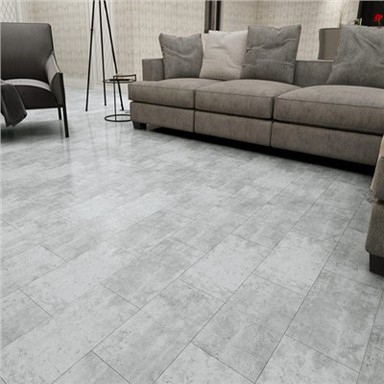Is SPC flooring environmentally friendly?
Sep 06, 2024
Can SPC Flooring Be Used in Commercial Spaces?
Yes, SPC (Stone Plastic Composite) flooring is highly suitable for commercial spaces due to its durability, water resistance, and ease of maintenance. It's often used in various settings, including offices, retail stores, hospitals, and schools. Here are some reasons why SPC flooring is a great choice for commercial applications:
Durability: SPC flooring is designed to withstand heavy foot traffic and resist scratches, dents, and wear. This makes it ideal for high-traffic areas, ensuring that it maintains its appearance over time.
Water Resistance: The waterproof nature of SPC flooring means it can handle spills and moisture, making it suitable for areas like kitchens, bathrooms, and entryways without the risk of damage.
Ease of Maintenance: SPC flooring is easy to clean and maintain, requiring only regular sweeping and occasional mopping. This convenience is a significant advantage in busy commercial environments.
Variety of Designs: Available in numerous styles and colors, SPC flooring can complement any commercial decor, from modern offices to more traditional retail spaces.
Cost-Effectiveness: Compared to other flooring options like hardwood or tile, SPC flooring is often more affordable, both in terms of initial investment and long-term maintenance costs.
What is the Lifespan of SPC Flooring?
The lifespan of SPC flooring generally ranges from 10 to 30 years, depending on several factors:
Quality of Product: Higher-quality SPC flooring typically lasts longer. Choosing reputable brands with good warranties can ensure better longevity.
Installation: Proper installation is crucial for maximizing the lifespan of SPC flooring. Following the manufacturer's guidelines can prevent issues that might lead to premature wear.
Traffic Levels: In commercial settings, the level of foot traffic can impact durability. SPC flooring in high-traffic areas may show wear sooner than in residential settings.
Maintenance: Regular maintenance, including cleaning and protective measures like area rugs, can significantly extend the lifespan of SPC flooring.
Environmental Conditions: Factors such as humidity and temperature fluctuations can also affect durability. SPC is generally stable but extreme conditions should still be avoided.
How Does SPC Flooring Handle Temperature Fluctuations?
SPC flooring is known for its ability to handle temperature fluctuations well, thanks to its unique composition:
Dimensionally Stable: SPC flooring is engineered to resist expansion and contraction caused by temperature changes. This stability makes it suitable for environments with varying temperatures, such as commercial spaces with large windows or areas near heating systems.
Temperature Tolerance: Unlike some other flooring types, SPC can tolerate a range of temperatures without warping or buckling. This is particularly important in settings where heating and cooling systems may cause significant temperature shifts.
Installation Considerations: During installation, it's essential to allow the flooring to acclimate to the room's temperature and humidity for at least 48 hours. This step helps minimize the potential for movement after installation.
Underlayment Benefits: Using an appropriate underlayment can further enhance the temperature stability of SPC flooring. It provides an additional buffer against thermal changes and can improve comfort underfoot.
Long-Term Performance: Regular monitoring of environmental conditions, such as humidity levels, can ensure optimal performance of SPC flooring over its lifespan. Maintaining a stable environment will help prevent any issues related to temperature fluctuations.






